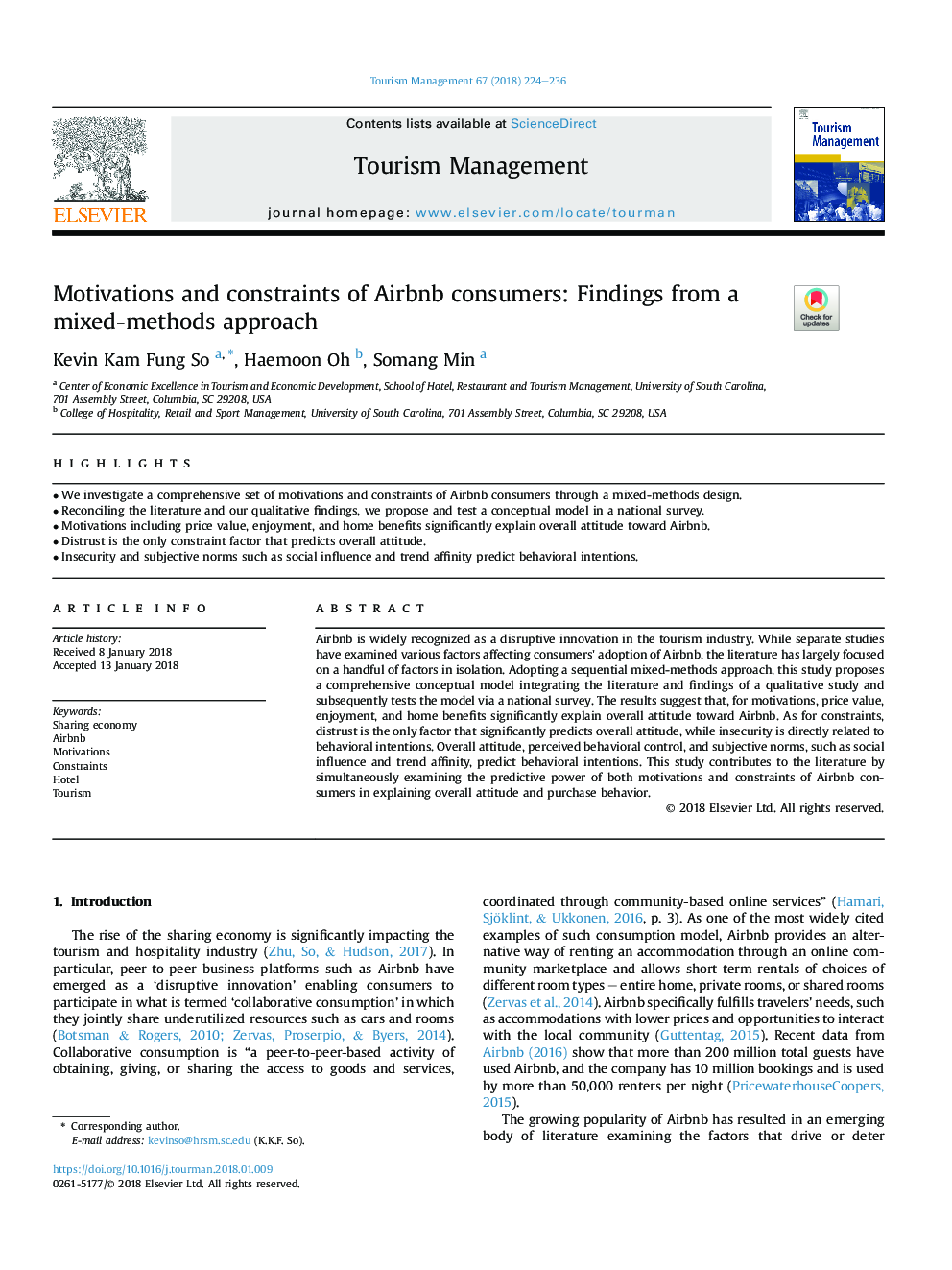| Article ID | Journal | Published Year | Pages | File Type |
|---|---|---|---|---|
| 7420982 | Tourism Management | 2018 | 13 Pages |
Abstract
Airbnb is widely recognized as a disruptive innovation in the tourism industry. While separate studies have examined various factors affecting consumers' adoption of Airbnb, the literature has largely focused on a handful of factors in isolation. Adopting a sequential mixed-methods approach, this study proposes a comprehensive conceptual model integrating the literature and findings of a qualitative study and subsequently tests the model via a national survey. The results suggest that, for motivations, price value, enjoyment, and home benefits significantly explain overall attitude toward Airbnb. As for constraints, distrust is the only factor that significantly predicts overall attitude, while insecurity is directly related to behavioral intentions. Overall attitude, perceived behavioral control, and subjective norms, such as social influence and trend affinity, predict behavioral intentions. This study contributes to the literature by simultaneously examining the predictive power of both motivations and constraints of Airbnb consumers in explaining overall attitude and purchase behavior.
Related Topics
Social Sciences and Humanities
Business, Management and Accounting
Strategy and Management
Authors
Kevin Kam Fung So, Haemoon Oh, Somang Min,
